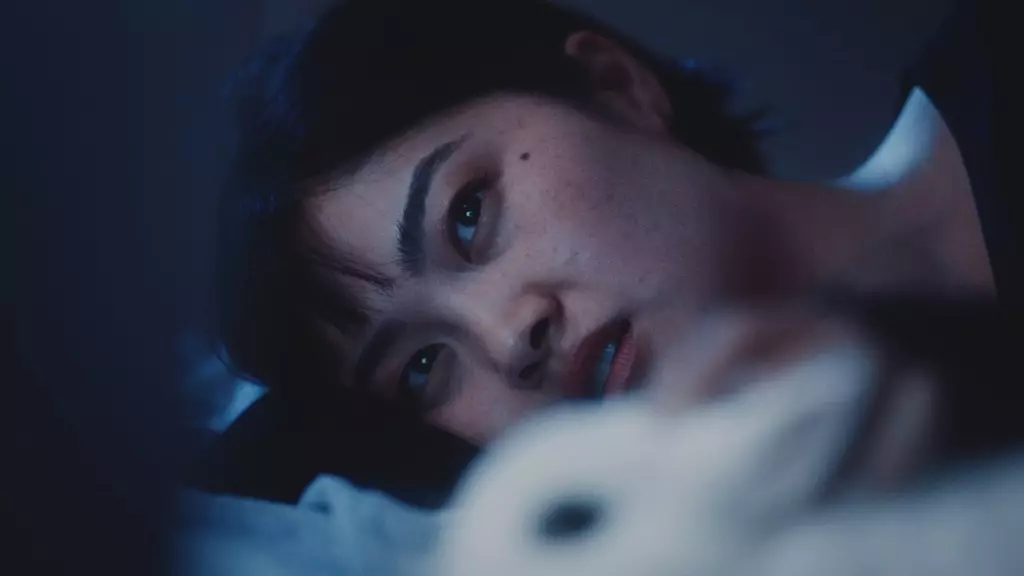Katarina Zhu’s debut feature, *Bunnylovr*, is a poignant exploration of contemporary issues such as identity, connection, and the often murky waters of self-worth in a digital world. By crafting a narrative that merges personal experience with broader societal themes, Zhu invites audiences into the intricate lives of her characters, particularly that of Becca, a young Chinese American navigating her way through New York City. With her portrayal, Zhu not only plays a character but also opens a window into the complexities of modern intimacy and the challenges of self-acceptance.
At the heart of *Bunnylovr* lies the duality of empowerment and objectification—a theme that resonates profoundly in Becca’s life. She embraces her role as a cam girl, seeking financial independence in an economy that leaves many feeling marginalized and powerless. However, this empowerment quickly spirals into objectification as she becomes increasingly commodified, especially by her clients and loved ones alike. John, one of her regular clients, exemplifies this toxic relationship dynamic, offering both financial security and emotional manipulation. It underscores how seeking agency in one’s sexual and digital identity can lead to an unintended loss of self, emphasizing the precarious balance many individuals must navigate in the often exploitative landscape of online interaction.
Relationships of Convenience and Emotional Toll
Zhu’s narrative does not shy away from illustrating the plethora of relationships that Becca balances throughout the film. From her estranged father William to her best friend Bella, each character serves as a reflection of Becca’s struggle for validation. The relationship with her father, who is depicted as both a source of luck and a figure of disappointment, brings forth feelings of abandonment and yearning for connection. Their fleeting encounters, particularly during card games in the park, symbolize the complexity of love and the hope for reconciliation. In contrast, Bella embodies the superficial bond formed through shared experiences in the art world, yet it is one that results in emotional disorientation for Becca as she grapples with the artist’s perception of her as a mere muse.
A Symbol of Transformation: The Pet Rabbit
The arrival of Milk, Becca’s unexpected gift from a client, morphs into a key symbol within the narrative. Initially viewed as an unwelcome reminder of her entrapments, the rabbit gradually becomes a representation of Becca’s journey towards self-care and nurturing. Unlike her tumultuous human interactions, Milk reflects a form of unconditional love and responsibility that Becca desperately needs. Her growth in embracing this relationship indicates a pivotal moment in her life, where acceptance transcends objectification, allowing her to cultivate a nurturing aspect of her personality that had long been stifled.
Ultimately, *Bunnylovr* is not solely a critique of the pressures exerted by societal expectations or the intricacies of familial relationships; it also serves as a narrative of self-rediscovery. Through Becca’s evolution, viewers are encouraged to reflect on the essential path to self-acceptance and the importance of prioritizing one’s own needs in a world rife with competing demands for attention and affection. Zhu’s nuanced approach illustrates that healing is an ongoing journey, filled with both setbacks and revelations.
A Reflection on Modern Intimacy
As we navigate through a world increasingly integrated with digital interactions, *Bunnylovr* stands as an important commentary on the evolving nature of relationships in the digital age. Zhu’s heartfelt storytelling intertwines humor with raw emotional experiences, shedding light on the inherent loneliness that can often accompany our search for connection. Ultimately, *Bunnylovr* invites audiences to consider not just the complexities of intimacy but also the dire necessity of genuine self-love and acceptance in reclaiming one’s identity amidst a sea of external pressures.


Leave a Reply